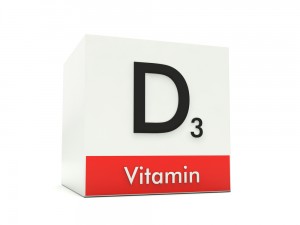 Cavities are typically thought of more as a stubborn nuisance than a serious chronic disease. Unfortunately, the consequences of untreated tooth decay belie this illusion. If left to its own devices, tooth decay will continue to carve a destructive path through the structure of your tooth, eventually spreading through the roots and possibly to surrounding teeth. While advancements in dentistry have provided us with numerous methods of treating tooth decay, prevention is always the best medicine. Dr. Coon, a family dentist in Sheridan, explains how nature helps provide tools to protect your oral health, specifically, in the form of vitamin D.
Cavities are typically thought of more as a stubborn nuisance than a serious chronic disease. Unfortunately, the consequences of untreated tooth decay belie this illusion. If left to its own devices, tooth decay will continue to carve a destructive path through the structure of your tooth, eventually spreading through the roots and possibly to surrounding teeth. While advancements in dentistry have provided us with numerous methods of treating tooth decay, prevention is always the best medicine. Dr. Coon, a family dentist in Sheridan, explains how nature helps provide tools to protect your oral health, specifically, in the form of vitamin D.
Tooth Decay’s Microbial Beginnings
There are myriad minerals and nutrients that are vital to the health of your teeth, gums, and jawbone. To understand what sets vitamin D’s benefits apart from the rest, you must first understand how tooth decay forms. Inside your mouth are over 600 different identifiable kinds of oral bacteria. Most are harmless. In fact, many are vital to maintaining your mouth’s delicate ecological balance. Some, however, are quite dangerous, and their mere presence can endanger your oral health. One germ in particular, called Streptococcus mutans, consumes sugars and carbs from your meals and converts them into lactic acid, which saps minerals from your teeth and weakens your tooth enamel (the strong protective layer that surrounds healthy teeth). Once your enamel is significantly weakened, oral bacteria can easily gain access to the main part of your tooth, called the dentin. Soon after, tooth decay sets in and begins the process of slowly destroying your tooth.
The Power of the Sun
While vitamin D is commonly found among dairy and other products rich in calcium, it is also produced within the human body as a result of sunlight exposure. Experts who have studied vitamin D and its relation to dental health agree that one of the vitamin’s most beneficial properties is its ability to induce an antimicrobial peptide that helps control bacterial accumulation. Controlling the bacteria that lead to tooth decay is essential for inhibiting acid production. Aside from its germ-fighting abilities, vitamin D is necessary for your body to absorb calcium, which helps maintain your jawbone strength and contributes to the formation of tooth enamel.
Excellent Dental Health in Sheridan
To learn more about protecting your teeth from tooth decay or other dental health issues, or to speak with your Sheridan dentist about improving your dental hygiene, schedule a consultation at Grinnell Street Dental by contacting our Sheridan dentist office at (307) 672-7567. We welcome patients from Sheridan, WY and the surrounding communities.







